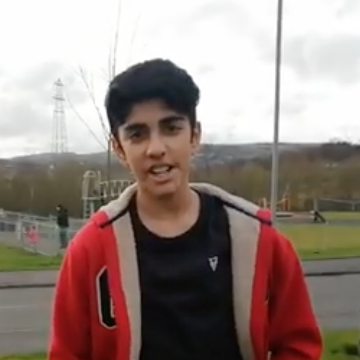From Drumchapel macaroni to white bread myths: what I’ve learned from four years of Food, Families, Futures
9 June 2020
Elaine Kerridge on how our food project has deepened her understanding of inequality – and the impact the clubs have had on health, relationships and sense of community
I have been involved in our award-winning Food, Families, Futures project since 2016 and I am pleased to say that part of my role has been to help support the evaluation of the Food, Families Futures clubs and hear from children and families. I have been lucky enough to travel across Scotland and see the clubs in action.
I have danced in Tranent, made floral artwork in Methil and played Human Hungry Hippos in Clydebank – apologies again to my colleague Jane for grazing her arm in the pursuit of the win!
I have made macaroni cheese in Drumchapel, 'fakeaways' in Prestonpans and tuna pasta bake in Blairgowrie. (Who knew cornflakes could be used for anything other than in a bowl of cereal or in a chocolate crispie cake?)
So what have I learned? What is my takeaway (pardon the pun) as this project draws to a close?
For Jamie Oliver it was turkey twizzlers. For me it was the ubiquitous white bread cheese sandwich. We make assumptions about other people's lives, including in this context what children will eat.
Over the past few years I have often heard 'Children will only eat white bread'. But our Food, Families, Futures clubs have shown this is not true; it is an unfounded fear. Children who have attended the clubs tell us 'I tried new things like tuna pasta' and 'I love fruit!'.
The opportunity to develop the activities and menus together, then cook and eat together, means everyone is engaged, people develop life skills, try new food and waste is reduced. Practitioners recognise 'The kids eat things they don't usually if they see someone else doing it' and parents tell us 'They are quite fussy but they have eaten wraps, sandwiches and soup'.
Certainly my understanding of the poverty-related issues many families living in Scotland face has increased. As has my understanding of the stigma attached to these issues and the further negative impact this can have on children and families.
Too often we hear about 'poor families', coupled with stock images of shoeless children. This is, at best, unhelpful and shows a complete lack of understanding of the experience of families across Scotland.
I have also learned a lot about food and the complexities of inequalities related to it. It seems accessing healthy and affordable food is indeed a postcode lottery.
The current Covid-19 situation has taught us many things, not least the importance of that very human experience that supports our health and wellbeing in so many ways – the opportunity to share food and quality time together.
Children, families and practitioners have told me the positive impact the Food, Families, Futures clubs have on health and wellbeing, relationships and a sense of community because 'It brings the community together'.
I look forward to a time when Sustainable Development Goal Number 2 - Zero Hunger is realised: 'End hunger, achieve food security and adequate nutrition for all' so all children in Scotland have an equal chance to flourish.

Our commitment to participation
Elaine is Policy Manager and part of our participation and engagement team
Click to meet the teamPositive change alongside families
Elaine has written a practical report for strategic leads capturing key FFF learning
Click to download the report
Challenging food insecurity
Our five-year food partnership programme addressed a major societal issue
Click to find out moreFood, fun and family learning
Shelagh Young's independent review of FFF looks at the project's impact and successes
Click to download the report
Participation guidelines
Our publication can help put children's voices at the heart of your participation work
Click to download